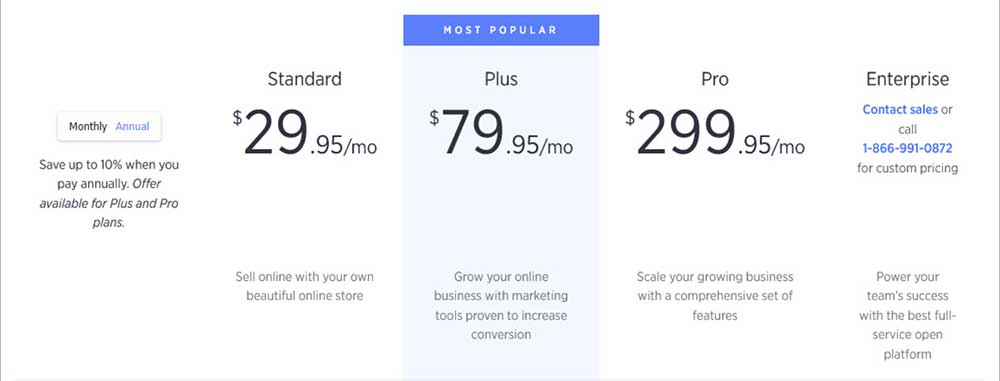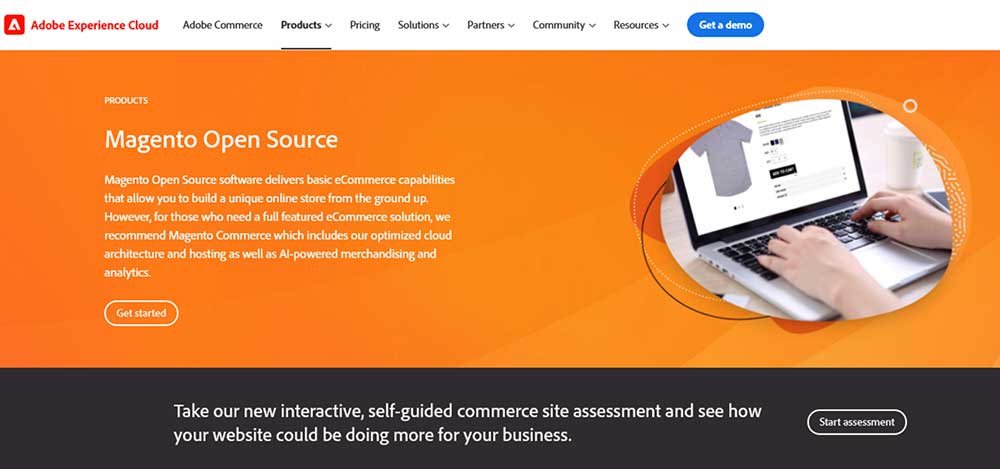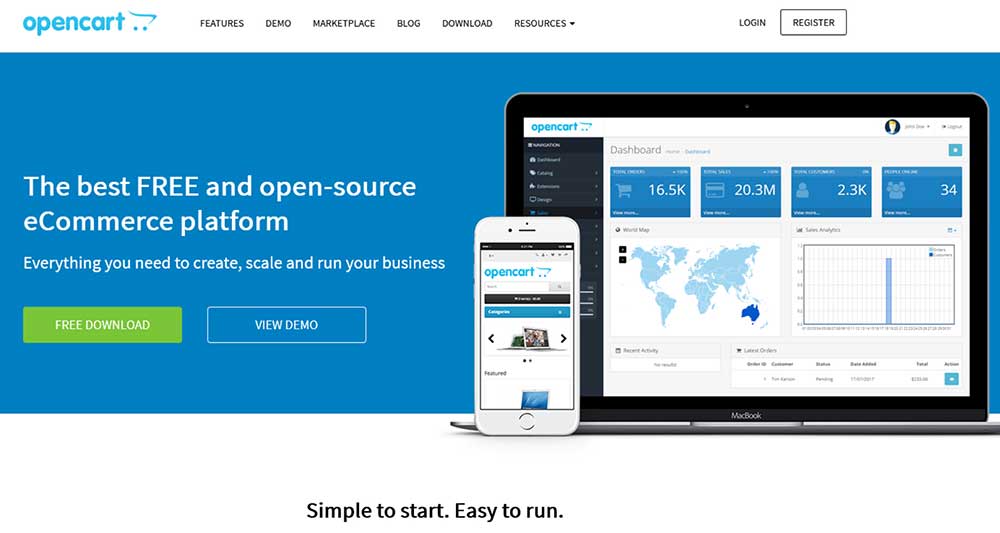Best BigCommerce Competitors and Alternatives in 2023
Are you looking for an ecommerce platform that has more features than BigCommerce? Are you frustrated with the limitations of BigCommerce’s platform? Check out our list of BigCommerce alternatives.
When it comes to shopping cart providers, BigCommerce is one of the biggest names in the game. But even BigCommerce has competitors, and there are a number of BigCommerce alternatives that you should explore before making any decisions.
Some of the biggest BigCommerce competitors include Shopify, Magento, and Volusion. All of these providers offer similar features and benefits, so it can be tough to decide which is the best fit for your business.
Even some platforms offer more features and are easier to use than BigCommerce. So if you’re looking for a better ecommerce platform, check out our list of BigCommerce competitors. Each of these providers has their own strengths and weaknesses, so you’ll need to do some research to figure out which one is the best for you.
Contents
- 1 BigCommerce Review
- 2 BigCommerce Competitors and Alternatives
- 3 FAQ – Frequently Asked Questions
- 3.1 What is the best BigCommerce alternative?
- 3.2 How do I migrate my BigCommerce store to a new platform?
- 3.3 What is the cheapest BigCommerce alternative?
- 3.4 How long does it take to migrate from BigCommerce to a new platform?
- 3.5 What are the risks of migrating from BigCommerce?
- 3.6 Can I keep my BigCommerce domain name when I migrate?
- 3.7 What are the differences between BigCommerce and Shopify?
- 3.8 What are the differences between BigCommerce and Magento?
- 4 Conclusion
BigCommerce Review
BigCommerce is one of the most popular shopping cart providers, offering an easy way to create your own ecommerce website for selling goods and services. BigCommerce offers powerful marketing tools, advanced shipping options, and even drop shipping capabilities through BigCommerce Dropshippers.

BigCommerce offers a free 15-day trial, so you can test out all the features before signing up. BigCommerce is a good solution for businesses that want a powerful website with advanced features and marketing tools.
BigCommerce has been around since 2006, so they have plenty of experience in the ecommerce space. BigCommerce also does not limit your inventory or products, so you can sell as many products as you want.
BigCommerce also has a number of BigCommerce apps that give users access to more features, including Bronto, Tobi, Demandware, ShipStation, and ShipperHQ.
Pros of BigCommerce
- Easy to use and set up
- Monthly fee starting at $29.95/month
- No limit on inventory or products
- Wide variety of BigCommerce apps available
- Lots of marketing tools and features
- Advanced shipping options
- No transaction fee for third-party payment gateways
Cons of BigCommerce
- Need to upgrade to more expensive plan if annual sale limit is crossed
- Limited design options
- No built-in reporting tools
Pricing
BigCommerce offers a free 15-day trial, and then charges a monthly fee after that. The Standard plan of BigCommerce comes at $29.95/mo, Plus plan at $79.95/mo, Pro plan comes at $299.95/mo, and for Enterprise you need to talk to their sales representative.

BigCommerce Competitors and Alternatives
Here is a list of the best BigCommerce competitors and alternatives that you can try and figure out which one is the best for you.
1. Shopify
Shopify is another popular shopping cart provider that is often compared to BigCommerce. Shopify is also free to set up but charges a monthly fee after the first 14 days.
Shopify has a larger number of design options and built-in apps than BigCommerce, but it doesn’t offer as many advanced shipping features (and you’ll have to pay for some of them). Shopify is easy to set up and does not require any special coding knowledge.
Key Features of Shopify
- Easy to use and set up with no special coding knowledge required
- Built-in apps for tasks like accounting, shopping carts, inventory management, and more
- More than 100 design options available
- Lots of advanced shipping features
- Free 14-day trial access before monthly fees kick in
Pricing
Shopify offers a free 14-day trial to test you their services before you start any paid plan. The Lite plan starts out at $9/mo; Basic plan is $29/mo; Shopify plan is $79/mo; and Advanced plan at $299/mo.
Bottom Line: Shopify is a very popular shopping cart provider that offers numerous features and benefits. If you’re looking for a comprehensive ecommerce solution, Shopify is a good option to consider.
Our Pick
Shopify -Best Ecommerce Platform
Shopify is one of the biggest and most popular cloud-based ecommerce platform for all scale of online business.
Easy to use and set up • Offers good SEO features • Offers free 14-day trial
2. Volusion
Volusion is another popular shopping cart provider that offers similar features to BigCommerce and Shopify. Volusion is free to set up but charges a monthly fee after the first 14 days.

Volusion has a slightly smaller number of design options than BigCommerce or Shopify, and it doesn’t offer as many advanced shipping features. Volusion is easy to set up and does not require any special coding knowledge.
Key Features of Volusion
- Easy to use and set up with no special coding knowledge required
- Less design options than BigCommerce and Shopify
- Limited advanced shipping features (and you’ll have to pay for some of them)
- Free 14-day trial before monthly fees kick in
Pricing
The Personal plan is $29/mo; Professional plan is $79/mo; and Business plan at $299/mo. They also offer a free 14-days trial before you start any paid plan.
Bottom Line: Volusion is another big player in the ecommerce space with many features and benefits. If you’re looking for a robust ecommerce solution, Volusion is worth considering.
3. Shift4Shop
Shift4Shop (previously 3dcart) is a popular shopping cart provider that offers similar features to BigCommerce and Shopify. Shift4Shop is free to set up, it means you can set up a full-featured store with Shift4Shop at no charge.

Shift4Shop has more design options than BigCommerce or Shopify, and it offers more advanced shipping features for an additional fee. Shift4Shop is easy to set up and does not require any special coding knowledge.
Key Features of Shift4Shop
- More design options than BigCommerce and Shopify
- Advanced shipping features for an additional fee
- Easy to use and set up with no special coding knowledge required
- Free to set up and use
Bottom Line: 3dcart is a popular shopping cart provider that offers many features and benefits. If you’re looking for a comprehensive ecommerce solution, 3dcart is a good option to consider.
4. WooCommerce
WooCommerce is an open-source shopping cart plugin for WordPress that is often compared to BigCommerce. WooCommerce is free to use but requires hosting and domain charges.
WooCommerce requires some coding knowledge to set up and is not as easy to use as BigCommerce or Shopify. WooCommerce has more design options than BigCommerce, and it offers more advanced shipping features.
Key Features of WooCommerce
- More design options than BigCommerce
- Requires some coding knowledge to set up
- Not as easy to use as BigCommerce or Shopify
- Advanced shipping features
- Free to use
Pricing
WooCommerce being an open-source platform is free, but you need to pay for domain fees (around $15/year) and hosting fees (approximately $120/year). Apart from this, you’ll also need to spend for a good looking theme ($20 – $100) and communications/SEO/security add up to be around $250/year.
Bottom Line: WooCommerce is an open source shopping cart plugin that has a lot of potential but may require more effort to get setup and running. If you’re looking for an open source solution, WooCommerce is worth considering.
5. Magento
Magento is a popular open source shopping cart platform that offers more features and flexibility than any of the other shopping carts on this list. Magento is free to use.

Magento requires some coding knowledge to set up and is not as easy to use as BigCommerce or Shopify. Magento has more design options than BigCommerce, and it offers more advanced shipping features.
Key Features of Magento
- More features and flexibility than any of the other shopping carts on this list
- Requires some coding knowledge to set up
- Not as easy to use as BigCommerce or Shopify
- Advanced shipping features
- Free to use
Pricing
Magento being an open-source platform is free, but you need to pay for domain fees (around $15/year) hosting fees (approximately $10–50/month) and SSL certificate ($50–300/year). Apart from this, you’ll also need to spend for Magento web design cost ($0–5,000+), extensions ($60–600/extension) and payment providers fees (2.9% + $0.30/transaction).
Bottom Line: Magento is a big player in the ecommerce space with numerous features and benefits. If you’re looking for an open source solution, Magento is worth considering.
6. PrestaShop
PrestaShop is another open source shopping cart platform that is often compared to Magento. PrestaShop is free to use but requires hosting and domain charges.

PrestaShop requires some coding knowledge to set up and is not as easy to use as BigCommerce or Shopify. PrestaShop has more design options than BigCommerce, and it offers more advanced shipping features.
Key Features of PrestaShop
- More design options than BigCommerce
- Requires some coding knowledge to set up
- Not as easy to use as BigCommerce or Shopify
- Advanced shipping features for an additional fee
- Free to use
Pricing
Just like Magento, PrestaShop being an open-source platform is free, but you need to pay for domain fees (around $15/year) and hosting fees (approximately $10–50/month). Apart from this, you’ll also need to spend for PrestaShop web design cost ($0–1,000+), Themes & modules($50-500).
Bottom Line: PrestaShop is another big player in the ecommerce space with countless features and benefits. If you’re looking for an open source solution, PrestaShop is worth considering.
7. OpenCart
OpenCart is an open source shopping cart platform that offers more features and flexibility than any of the other shopping carts on this list. OpenCart is free to use.

OpenCart requires some coding knowledge to set up and is not as easy to use as BigCommerce or Shopify. OpenCart has more design options than BigCommerce, and it offers more advanced shipping features.
Key Features of OpenCart
- More design options than BigCommerce
- Requires some coding knowledge to set up
- Not as easy to use as BigCommerce or Shopify
- Advanced shipping options for an additional fee
- Free to use
Pricing
Just like Magento, OpenCart being an open-source platform is free, but you need to pay for domain fees (around $15/year) and hosting fees (approximately $10–50/month). Apart from this, you’ll also need to spend for OpenCart web design cost ($0–1,000+), Themes & modules($50-500).
Bottom Line: OpenCart is another big player in the ecommerce space with many features and benefits. If you’re looking for an open source solution, OpenCart is worth considering.
8. Wix eCommerce
Wix eCommerce is a shopping cart platform that is hosted by Wix.com. Wix eCommerce is not as flexible as the other shopping carts on this list, but it is easy to use and does not require any coding knowledge.

Wix eCommerce has fewer design options than BigCommerce, and it does not offer advanced shipping features.
Key Features of Wix eCommerce
- Easy to use
- No coding knowledge required
- Fewer design options than BigCommerce
- Does not offer advanced shipping features
Pricing
Wix eCommerce has three plans to choose from, Business Basic costs $23/ Month, Business Unlimited costs $27 and Business VIP costs $49. They don’t offer a free trial but offers 14 days money-back guarantee, so you can test this platform out without worrying.
Bottom Line: Wix eCommerce is a good option if you’re looking for a shopping cart platform that is easy to use. If you’re looking for more advanced features, BigCommerce is the way to go.
FAQ – Frequently Asked Questions
What is the best BigCommerce alternative?
There is no one-size-fits-all answer to this question, as the best BigCommerce alternative for your business will depend on your specific needs and requirements. However, some of the most popular BigCommerce alternatives include Shopify, Magento, and WooCommerce.
How do I migrate my BigCommerce store to a new platform?
You’ll need to follow these five steps when you’re migrating your BigCommerce store to another platform:
– Export your BigCommerce data.
– Back up your current website.
– Install the CMS of the new platform on top of your exported data and backup.
– Import your BigCommerce data into the new CMS.
– Configure your new website.
What is the cheapest BigCommerce alternative?
The cheapest BigCommerce alternative is Open Cart, which costs $50 per year and does not require any coding knowledge to use. However, if you require a more advanced platform that doesn’t cost as much as BigCommerce, you should consider Shopify or Volusion, which cost $29.95 and $69 per month respectively.
How long does it take to migrate from BigCommerce to a new platform?
The time it takes you to migrate your BigCommerce store will depend on the size of your business and how many products you sell. The more products and data you have, the more time it will take to migrate. However, most migrations can be completed within a few days.
What are the risks of migrating from BigCommerce?
The main risk of migrating from BigCommerce is that your website may not function correctly on the new platform. This can be due to a number of reasons, such as incompatible themes or plugins, or the new platform not being able to handle the amount of traffic your website receives. To avoid this, be sure to test your website on the new platform before making the switch.
Can I keep my BigCommerce domain name when I migrate?
Yes, you can keep your BigCommerce domain name when you migrate to a new platform. However, you will need to set up DNS records for the new platform so that your website can be found at the correct address. If you’re not comfortable doing this yourself, you can hire a web developer to help you out.
What are the differences between BigCommerce and Shopify?
The main differences between BigCommerce and Shopify are that Shopify offers more features, is slightly cheaper, and has a better design interface. However, BigCommerce is slightly more customizable than Shopify.
Conclusion
If you’re looking for a BigCommerce alternative, then the list of ecommerce providers above will help point you in the right direction. If not, don’t forget to take advantage of their free trial offer and find out if BigCommerce is still the best choice for your ecommerce business.
So, before you make any decisions about your e-commerce platform, explore the BigCommerce competitors and alternatives we’ve provided. We’re confident that one of these platforms will be a perfect fit for all of your business needs and goals!






